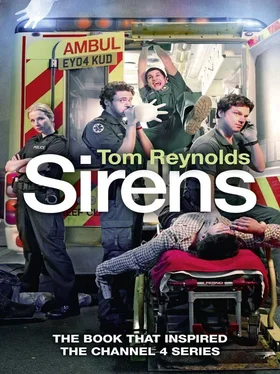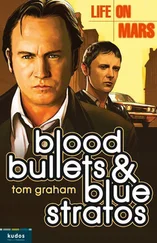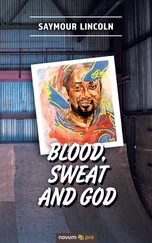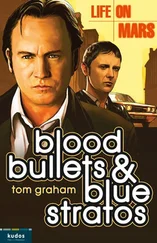The final job was a lot simpler – we were called to an 18-to 22-year-old female who was ‘unresponsive’ in a bus. The bus had reached the end of its route and the driver couldn’t wake up the patient. (Possibly interesting aside – bus drivers cannot touch any of their customers to wake them up.) We turned up and soon managed to wake up the very sleepy girl. She remained drowsy but agreed to let us take her to the place where she lived, but after talking to her a bit, we soon realised that she was homeless. This, coupled with the way she would fall asleep as soon as we stopped talking to her, made us think that it would not be safe to leave her on the street. We decided instead that we would take her to hospital. When we reached the hospital she refused to go in, and instead pulled out a ‘crack’ pipe and started to light up. We told her that she couldn’t do that … So she jumped up, pushed my crewmate and ran off. As there was nothing physically wrong with her we couldn’t chase after her; instead we returned to our station to fill in the necessary paperwork.
So why was it that this last job was the most upsetting, not only for myself but also for my crewmate? Well it wasn’t because she was pretty (she wasn’t, and she had a remarkably nasal voice), and it wasn’t because she was ill, neither was it because my crewmate got shoved.
With our first job, the woman was at the end of her life, and until she died, had enjoyed fairly good health. She didn’t die a painful, protracted death, and she died with her daughter next to her. With the scalded child, he would forget the pain, and will receive excellent care from the hospital he went to, he would return home to his loving (if ever so slightly dense) mother. With this girl, it was as if she were lost; at some point in her life her potential future had unravelled. Instead of getting an education, holding down a job, finding someone special and living a long and happy life, she is homeless, a drug addict, and her future is probably painful and short. What is so depressing is that no-one was able to turn around this descent, and this is perhaps why I despair at society – that so many people are prevented from reaching their full potential. I understand that she has made her own choices, but how much power did she have to make those choices? I wanted to help her, but there was no way I could do this.
And it’s that which annoyed and upset me.
I keep getting upset and annoyed at the same things – the waste of a life is a terrible thing to see. That, and the knowledge that I am helpless to do anything to change it. I imagine that this is why I dislike alcoholics so much.
 Therapy?
Therapy?
We got sent to a job of a 6-month-old baby not breathing. While this often means that baby has a cold, it could also be one of the worst jobs you can get. We sped to the address and entered a house where the whole family was distraught. It was an Indian household, so there were a lot of people there, and most of them were crying. Once more, I heard the type of crying that can only mean that something awful has happened – entering the living room I instantly saw a baby lying dead on the settee, father crouched over it crying and the mother standing and wailing, shouting out that her baby was dead.
There is only one thing that you can do in a situation like this, which is to scoop up the baby and run to hospital as quickly as possible. I reached down and picked up the baby; I was shocked to find that it was as stiff as a board and very purple, indicating that it had been dead for some time. It looked more like a doll than anything that had once been alive. We could have recognised the child as dead on the scene, but taking the child to hospital would mean that the parents would see that everything that could be done was being done and, more importantly, they would be in a hospital with all the support that the hospital could provide.
I ran out to the ambulance with mother in tow, and told my crewmate to get us to hospital as quickly as possible. The father and grandmother followed behind us in another ambulance who had heard this call go out and had turned up to see if there was anything that they could do to help. On the way to hospital I did the CPR that I knew was ultimately pointless and spoke to the mother. She had last seen the child alive at 3 a.m., and he had been fine then. It looked like it may have been a case of sudden infant death syndrome, and I did all that I could to prepare the mother for the worst.
We pulled up at hospital and handed the baby into the care of the hospital. I spoke a little more with the mother and grandmother, but there is nothing that you can say to people who have had such a tragedy. Our station officer met us at the hospital and asked us if we were alright, then he booked us off the road so that we could go back to station and have a cup of tea and ‘decompress’. If we needed more support I think it would have been there, but I just wanted to get away from the hospital.
I’m not often affected by jobs, and this isn’t the first dead baby that I’ve had to deal with, but it is the first dead baby I’ve had since joining the ambulance service and it is very different from dealing with them in hospital. Going into someone’s house to take away a dead child is very different from having the child and parents turn up at hospital, which is your safe territory.
At the hospital all the other crews were asking if I was alright and, to be honest, I wasn’t really alright – I was upset that while I was doing CPR on the baby its legs were seesawing into the air, and it looked too much like a doll. There was a point after the job where I thought I was going to start crying, but a moment outside the Resus’ room and I was back to functioning as I normally do. I’m not weak, and when in the midst of something I can deal with anything – it was only after the doctors and nurses at the hospital had taken over that I started to feel anything.
We returned to station, where the therapy of talking about anal surgery with another crew, and a cup of tea, soon had me feeling better. It used to be that you would return to work straight after a job like this, but then I think they realised that if we got our normal inappropriate call (bellyache for 2 weeks sort of thing) we might say something to the patient that we might later regret.
Well, an hour on station later and I feel fully prepared to deal with that sort of thing again – but I think that I’ll be haunted by the image of that child lying dead on my trolley.
I had loads of people commenting on this post, loads of support, which was very much appreciated. The title is a reference to the fact that I have found my blog to be ‘therapy’ for some of the things that I’ve seen and done in the ambulance service … and it’s cheaper than hitting the bottle.
 Dog Teams
Dog Teams
I’ve often mentioned that the ambulance service and the police tend to get on rather well together; this is at least in part due to us both being called to the same jobs, and probably because we share the same view of the ‘Great British Public’.
An example: we got called to a drunk who was being verbally abusive to a bus driver – we were called because the drunk had fallen over, while the police were called because of the abuse. The drunk man was obnoxious, and well known to both of our services, and because of the lack of an injury was left in the care of the police. If he had been injured then the police would have left the matter in our hands.
So, when we co-respond, the ambulance crew pray that the patient is uninjured, so the police have to deal with them, while I suspect that the police hope that the patient is injured so they don’t have to arrest them.
Читать дальше

 Therapy?
Therapy?










